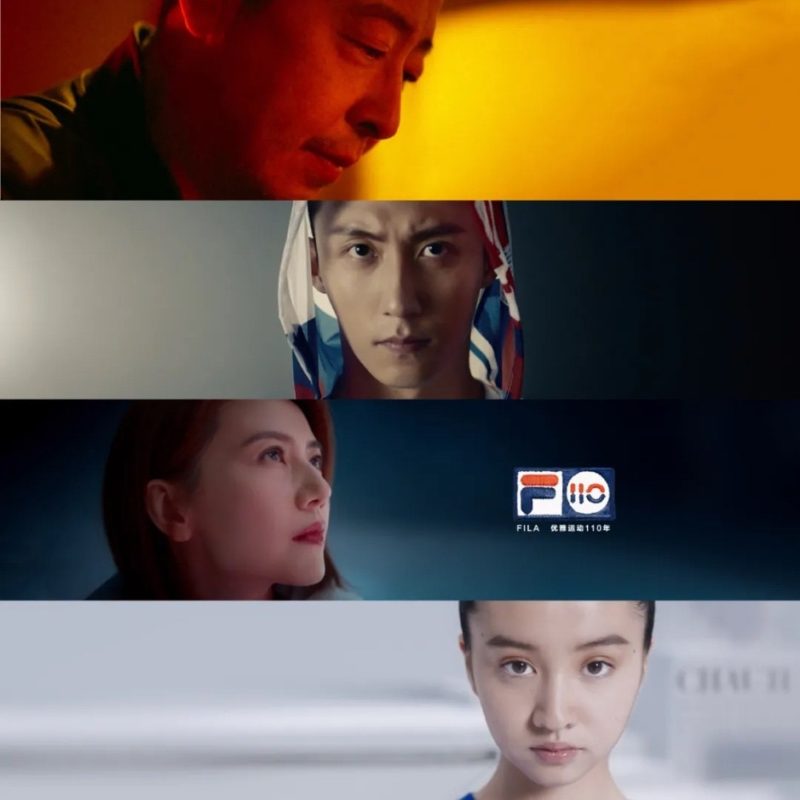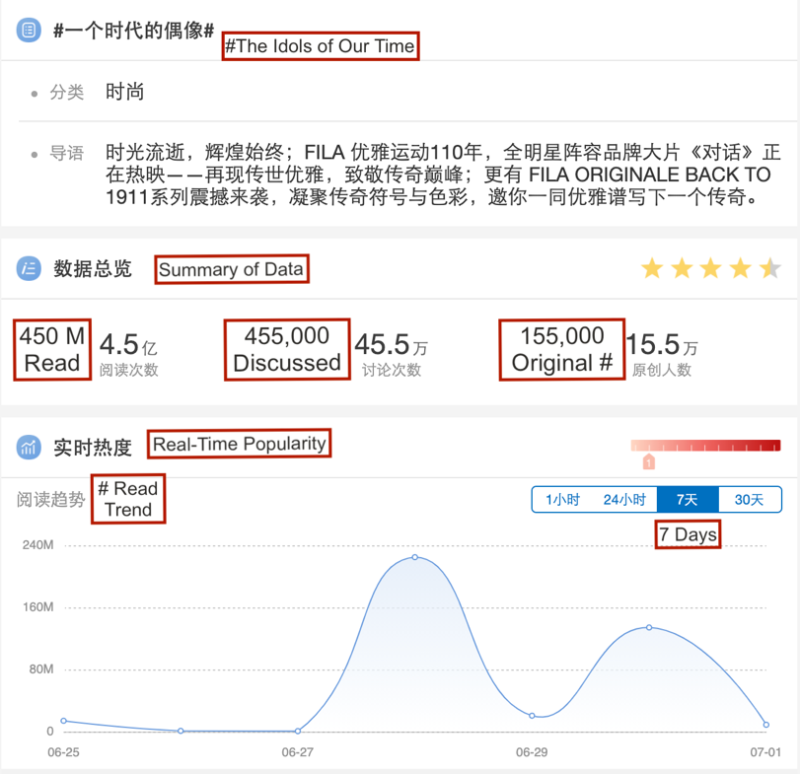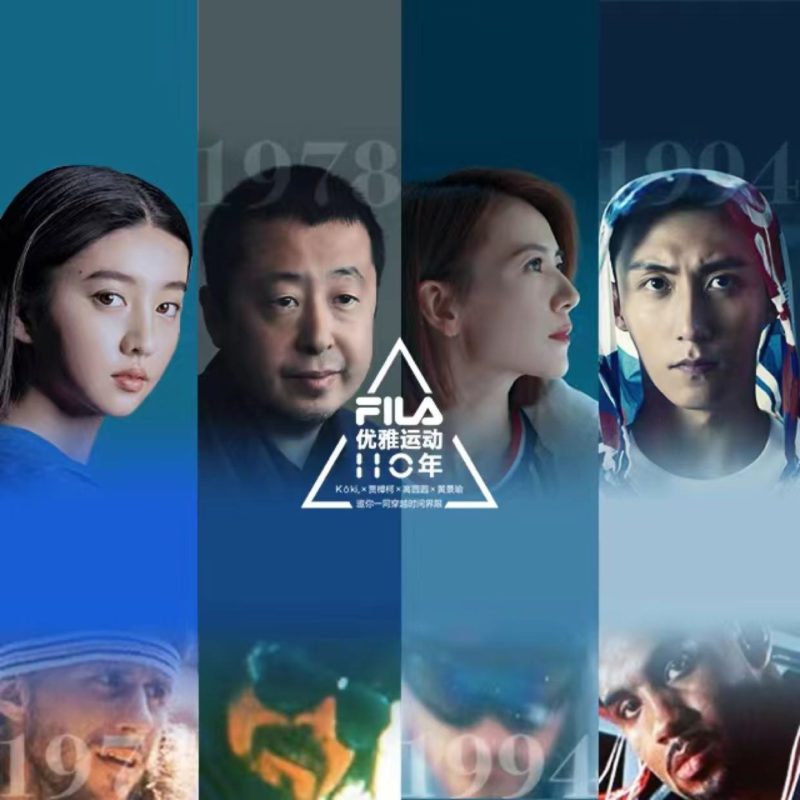On June 28th, FILA’s new campaign 《对话》 (Conversation) and its Weibo hashtag #一个时代的偶像# (#The Idols of Our Time) was released and soon became a hot topic. By 5th July, this topic was read 460+ million times and discussed 456,000+ times (including 155,000+ posts with the hashtag). With this ad, the brand celebrated its 110th-anniversary using hashtag #FILA 优雅运动110年# (# FILA 110 years of Elegance in Sports).
FILA invited Chinese actors Huang Jingyu and Gao Yuanyuan, Japanese model Kōki, and Chinese director Jia Zhangke to speak to sports icons seven-time NBA All-Star Grant Hill, former World Cup alpine ski racer Alberto Tomba, Hall of Fame tennis player Bjӧrn Borg, and Italian mountaineer and explorer Reinhold Messner.

FILA speaks the Same Language as the Chinese Audience
One of the reasons why the campaign gained huge attention was FILA adjusted its language to resonate with the Chinese audience. The word “时代 (time)” in #一个时代的偶像# (#The Idols of Our Time) is a meaningful word for Chinese people. It had been a word frequently used by the Chinese Communist Party (CCP) since its inception. As July 1st was the 100th anniversary of the CCP, many comparisons were drawn between the young people who founded the CCP and today’s generation.
The mainstream media criticizes the younger generation for having an overt obsession with celebrities advocates for role models in personal lives and careers. FILA astutely captured the need for icons outside of the entertainment and gave four stories of athletes who were also worthy of respect for succeeding in their fields.
Further, in using “偶像 (idol),” now the term for celebrities who were produced by the highly manufactured star system and debuted with the support of fans, FILA successfully started virtual discussions for the controversial public issue of “偶像过剩 (Excess of Idols)” in modern Chinese society. Although the idol economy is booming and brands riding the trend are enjoying huge sales, mainstream media is often skeptical and criticizes the phenomenon of over-idolizing celebrities. Half an hour after FILA releasing the campaign, the mainstream news accounts were the first to answer Fila’s question on “who are the idols of our time,” and they thanked FILA for speaking up and initiating a public conversation on the topic. They also appealed to Chinese people for bringing back the lost meaning of “偶像 (idol),” which referred to a hero worthy of admiration.

Later, China’s famous commentators joined the discussion. Reposting the campaign, Chinese reporters, entrepreneurs, chief editors of fashion magazines, and writers all shared their ideas on the definition of idols. Rising stars from the Chinese Idol draft variety show also talked about their heroes and asked their fans to whom they looked up. Many netizens posted with the hashtag to share their non-celebrity idols from their personal lives and careers.

Taking a Stand on Social Issues
FILA illustrated that orienting the campaign on thought-provoking and perhaps controversial topics also works well. Some saw choosing celebrities to be idols as a personal choice, while some criticize it. FILA did not directly stand on either side but provided a perspective to look at “偶像 (idols)” in a traditional sense. To engage the audience of different ages, FILA also made the smart move to invite stars from idol shows. When both social elites and celebrities were involved in the conversation, they created a strong momentum that made the topic a big trend on Weibo.
Not only had FILA gained mainstream media endorsements, but this campaign also allowed FILA’s brand image to be imprinted on consumers’ minds. FILA pulled the concept of “Elegance” from FILA brand culture and managed to communicate its history and values with excellent execution. In the campaign celebrating FILA’s 110th anniversary, the celebrities told four stories about elegance in sports. The campaign delivered the stories with sincerity. Till July 5th, FILA has 10,970,000+ fans on Tmall. FILA’s aim for this campaign was to position its FILA ORIGINALE BACK TO 1911 collection as the intermediary for achieving elegance, especially in sports. The timing was perfect, too. As the Summer Olympics 2021 is set to begin in Tokyo, FILA connects with the Chinese audience on a deeper level for its take on sports and elegance.
Author: Zhiting (Vanessa) Sun





